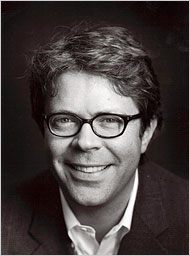At the Harlan Ellison message board, Ellison has posted the following (which he gives permission to disseminate):
Would you believe that, having left the Hugo ceremonies immediately after my part in it, while it was still in progress … and having left the hall entirely … yet having been around later that night for Kieth Kato’s traditional chili party … and having taken off next morning for return home … and not having the internet facility to open “journalfen” (or whatever it is), I was unaware of any problem proceeding from my intendedly-childlike grabbing of Connie Willis’s left breast, as she was exhorting me to behave.
Nonetheless, despite my only becoming aware of this brouhaha right this moment (12 noon LA time, Tuesday the 29th), three days after the digital spasm that seems to be in uproar …YOU ARE ABSOLUTELY RIGHT!!!
iT IS UNCONSCIONABLE FOR A MAN TO GRAB A WOMAN’S BREAST WITHOUT HER EXPLICIT PERMISSION. To do otherwise is to go ‘way over the line in terms of invasion of someone’s personal space. It is crude behavior at best, and actionable behavior at worst. When George W> Bush massaged the back of the neck of that female foreign dignitary, we were all justly appalled. For me to grab Connie’s breast is in excusable, indefensible, gauche, and properly offensive to any observers or those who heard of it later.
I agree wholeheartedly.
I’ve called Connie. Haven’t heard back from her yet. Maybe I never will.
So. What now, folks? It’s not as if I haven’t been a politically incorrect creature in the past. But apparently, Lynne, my 72 years of indefensible, gauche (yet for the most part classy), horrifying, jaw-dropping, sophomoric, sometimes imbecile behavior hasn’t–till now–reached your level of outrage.
I’m glad, at last, to have transcended your expectations. I stand naked and defenseless before your absolutely correct chiding.
With genuine thanks for the post, and celestial affection, I remain, puckishly,
Yr. pal, Harlan
P.S. You have my permission to repost this reply anywhere you choose, on journalfen, at SFWA, on every blog in the universe, and even as graffiti on the Great Wall of China.
* * *
There are several things wrong with this.
1. The notion that grabbing Willis’s breast was “childlike” and thus excusable. From all reports (and unfortunately, what we have now is mostly circumstantial), Willis in no way asked Ellison to grab her breast, nor chided him to do so.
2. If what Ellison did was somehow “right” (to his eye) in this context, why not expatiate at length about it? This is particularly uncharacteristic for Ellison, as he’s known to keep obsessive records about damn near everything to prove that he’s right.
3. The utter hypocrisy in Ellison failing to state how exactly he obtained Willis’s explicit permission while on stage (if he did indeed so), while similarly complaining about how other men are not entitled to do so.
4. The wholesale inability to say “I’m sorry” or “I apologize.”
5. The sanctimonious notion that he can get away with this and that this is the product of “a politically incorrect creature” rather than a boorish pig.
Do you think that Ellison had Nixon’s Checkers speech in mind? After all, Nixon likewise found his hand caught in the cookie jar, likewise shifted the terms of the argument away from personal culpability, and likewise couldn’t find it within him to say “I’m sorry” or “I apologize.”
UPDATE: Video and screenshot.
 Reading this collection and having this misfortune to experience some of these
Reading this collection and having this misfortune to experience some of these